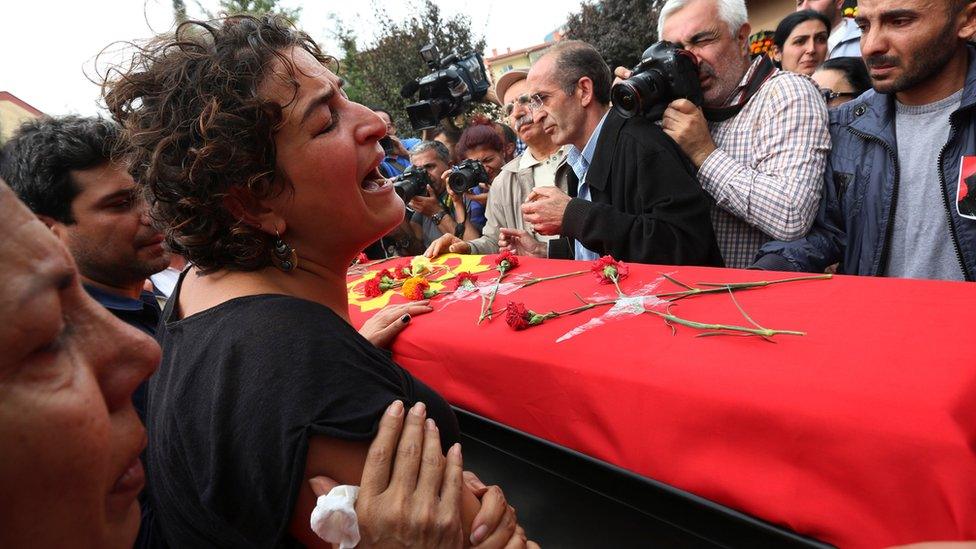Ankara bombings: Turkish lives traumatised by twin attacks
- Published
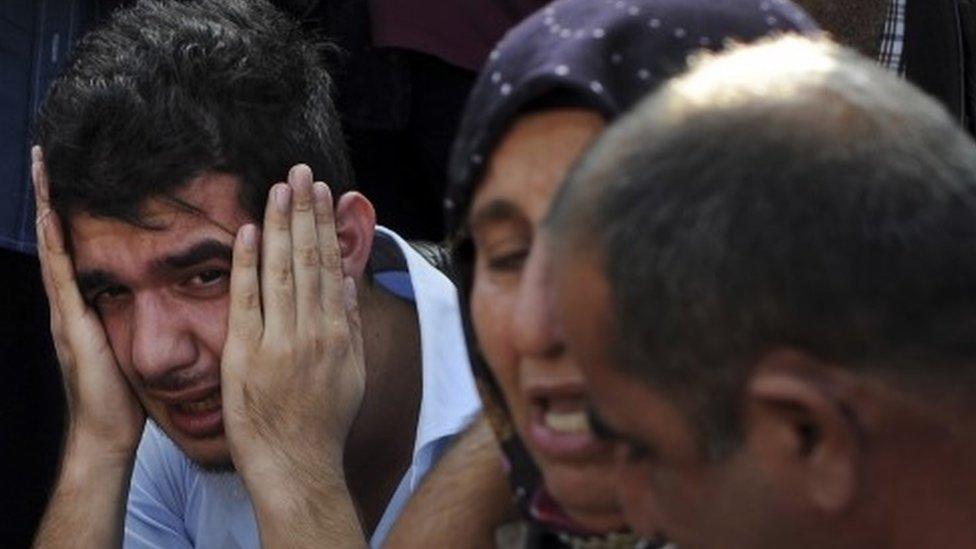
Doctors say that because bomb attacks and other acts of violence trigger feelings like rage, people should be allowed to vent their emotions
"There is a family who have lost three members. They are still waiting by the forensics clinic," says psychologist Sukran Pekin Balci, one of a group of volunteers offering counselling to the victims of last Saturday's double bomb attack on a peace rally in Ankara.
The bombings claimed 99 lives and left many more wounded - the deadliest ever such attack on Turkish soil.
The psychologist says the three bodies had to be among more than over 1,000 body parts to be brought together for identification.
"You have to accept all the feelings of people who've lost loved ones. You can't just say: 'Don't cry. Stay strong.'"
Grieving mother
At one of the hospitals where dozens of wounded victims are still being treated, a mother is in tears. "My heart is bleeding," she says.
Her daughter is in intensive care and doctors say they need to amputate her leg to save her life.
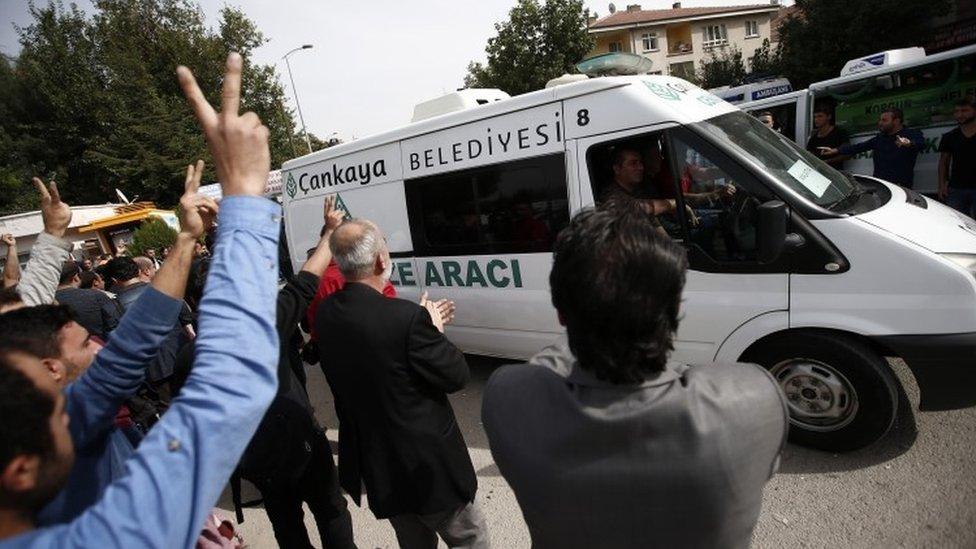
Vans taking dead people from hospital morgues to their funeral processions have become a common site in Ankara in recent days
A relative holds her hand, trying to console her.
Psychologist Ercan Basal is trying to help and sees an opposition MP visiting the hospital who lost two limbs in a train accident.
"I wanted to introduce her to the family," he says. "People suffering from trauma benefit from speaking to others who went through the same experience. They assume that no-one can possibly understand how they feel without living through such a thing themselves."
A brief conversation with the MP seems to help the grieving mother, he says. Before they spoke, the mother could only stare at the ground.
"She didn't move at all, but after she spoke with the MP she stood up and went out for a walk with her husband," says Mr Basal.
The twin explosions were witnessed by thousands gathering for a peace rally outside Ankara railway station. Thousands more said they had missed the attacks by minutes.
Millions more saw footage of the explosions and their aftermath on the internet and TV.
Bloody aftermath
Days later, at the scene of the bombings, the conversation revolves around what people were doing when the bombs went off, where they were and, in many cases, how they survived.
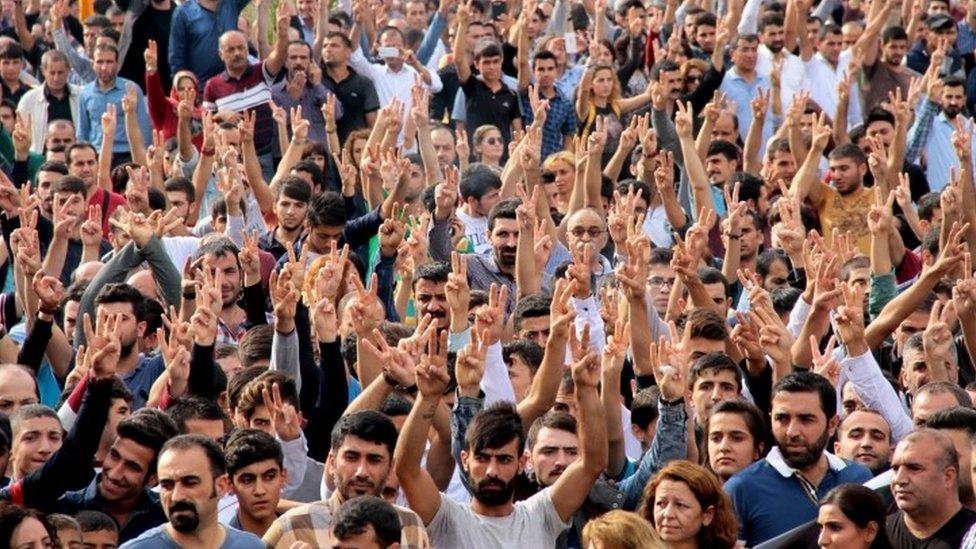
There has been a stream of demonstrations against the bombings in Ankara throughout the past week
"I couldn't get over it for days. I've only been able to go back on the streets today," a food stall owner tells me as he cooks meat over a grill.
He shows me several photos he took of the aftermath last Saturday, of body parts scattered around the scene.
"A food stall owner was also killed, you know," he tells me, implying that it could quite easily have been him.
A young man says his two friends were killed, and describes how he had to carry the dead and wounded to nearby ambulances with his bare hands.
Another tells me he is ashamed to be alive after witnessing such horror. "I wish I were dead too," he says.
'Anger and shock'
In Ankara now, friends asks each other if they're all right, just for reassurance. The answer is usually along the lines of: "I'm OK, if you can call anything OK now."
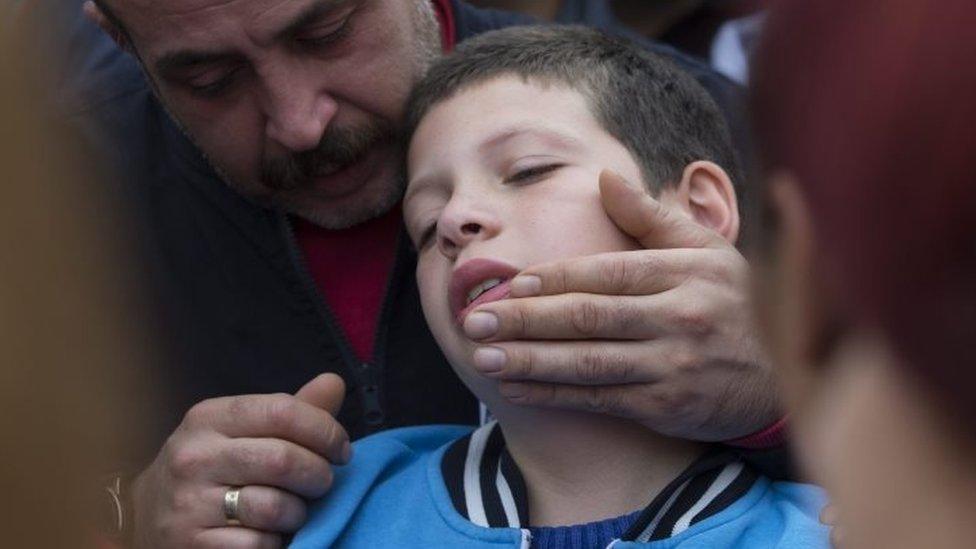
Family and friends of those killed have endured untold suffering over the last few days
The trauma of the attacks has affected thousands of Turks, the severity depending on the extent of violence they have been subjected to.
Specialists say there will be feelings of anger, shock, denial, fear, panic, embarrassment or guilt. Those traumatised might have sleeping or eating disorders, they might lose their sense of reality or experience a total loss of emotion.
"Such man-made attacks not only kill or injure people, but also cause severe harm on the psychology of individuals and society," says Cagay Duru of the Association of Turkish Psychologists.
Police have intervened in several demonstrations across Turkey in recent days, tear gassing people protesting against the bombings.
Dr Duru believes people should be allowed to vent their feelings after such an event.
"That is the only way to release the anger or other emotions that they feel," he says.
Because Turkish politics has become polarised and politicians have blamed each other for the escalation of violence, he argues that Turkish society is in a poor mental state.
"Politicians should refrain from aggressive rhetoric. They should open the channels for dialogue. We should immediately try to develop empathy and toleration," he says.
- Published12 October 2015
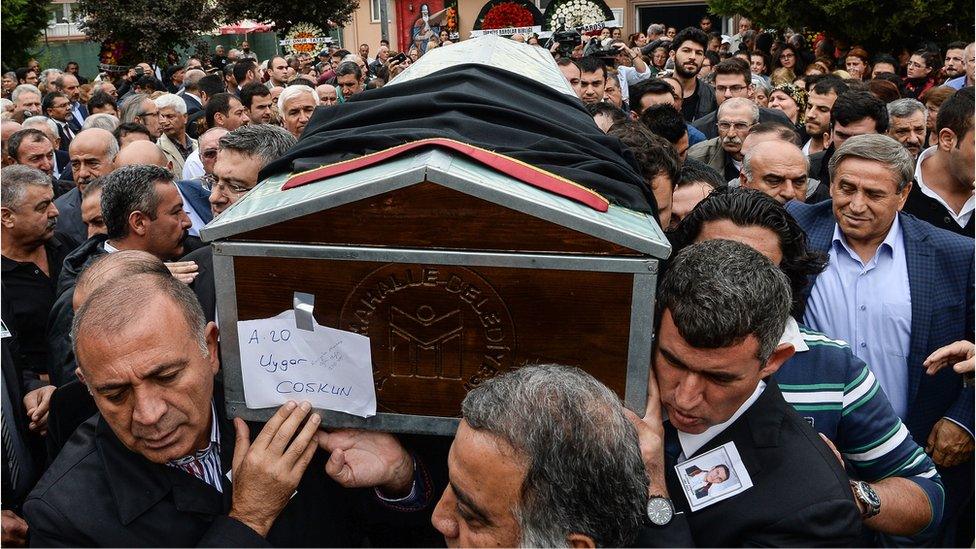
- Published5 January 2017
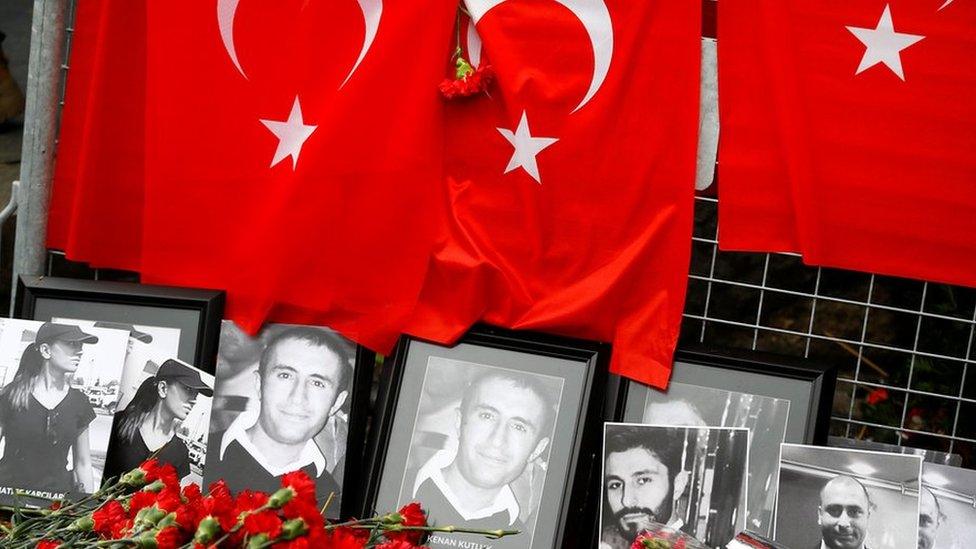
- Published14 October 2015
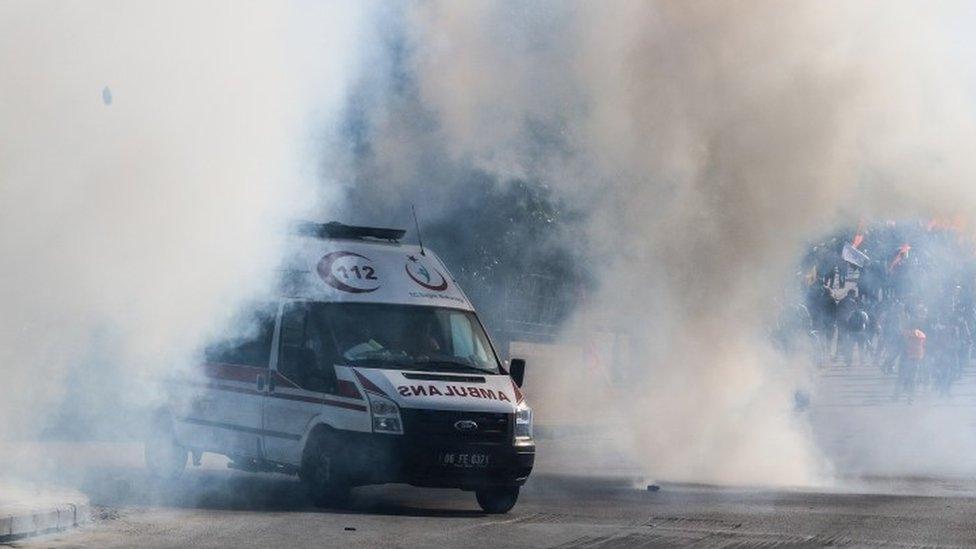
- Published14 October 2015
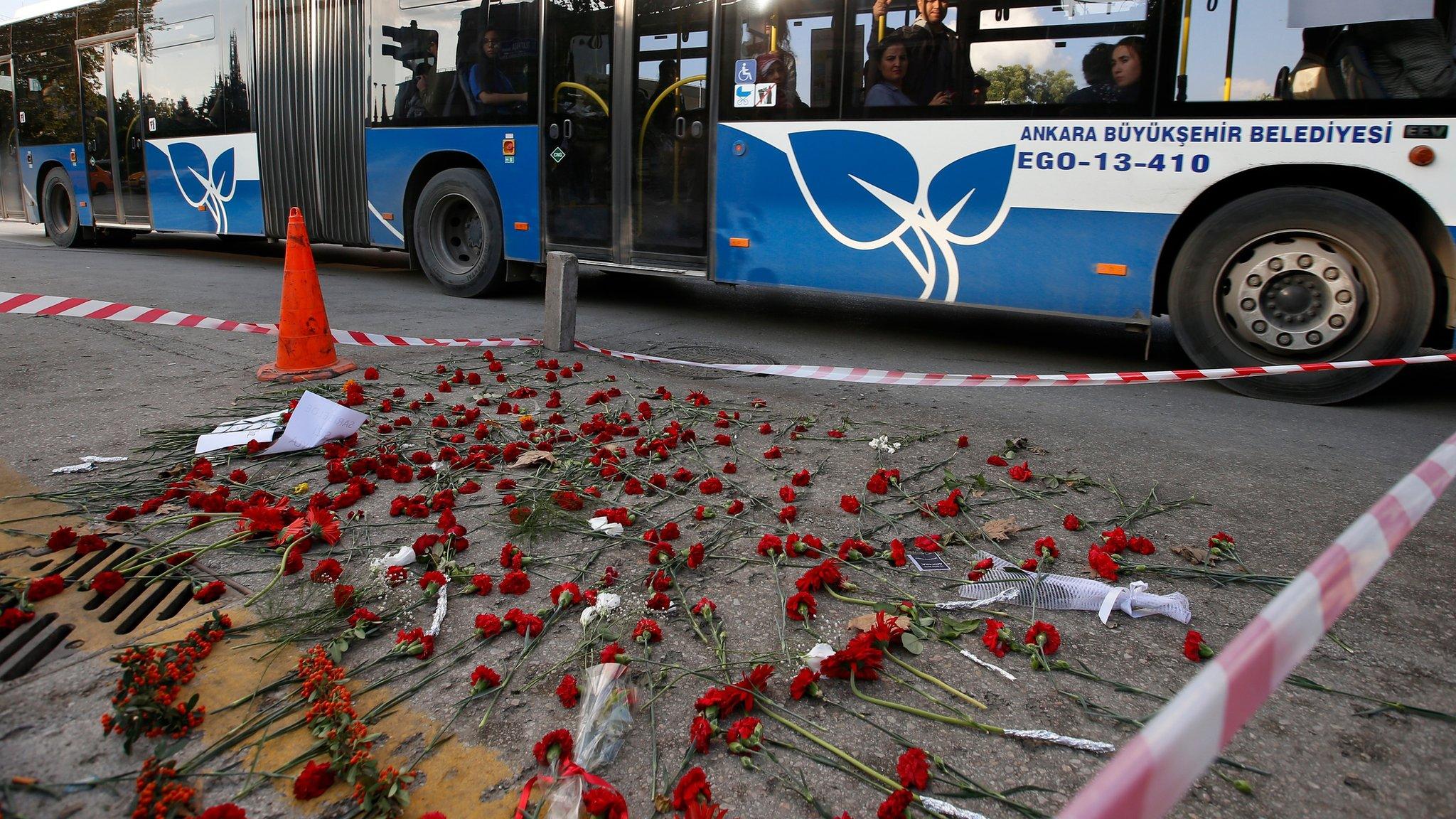
- Published11 October 2015
